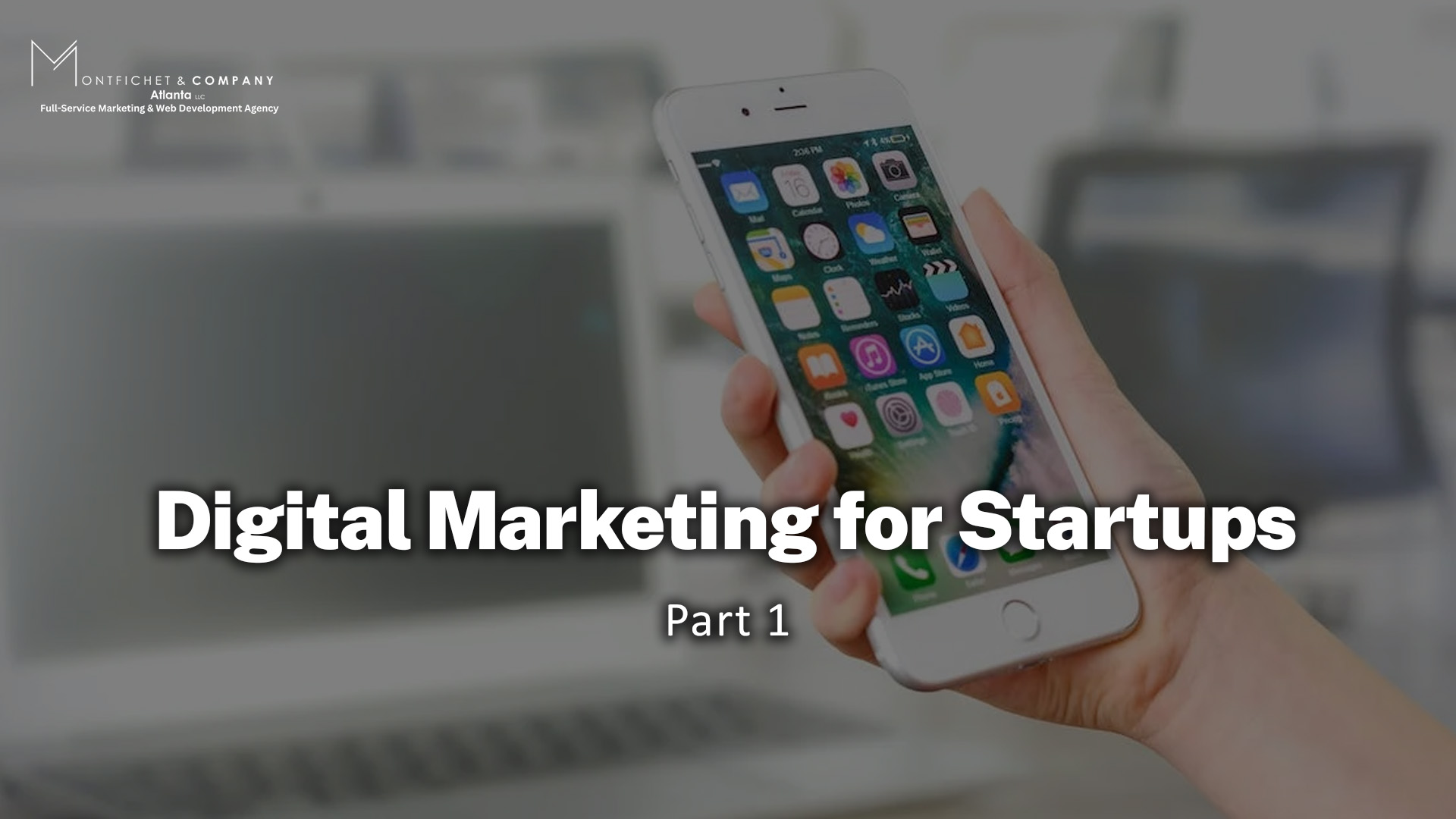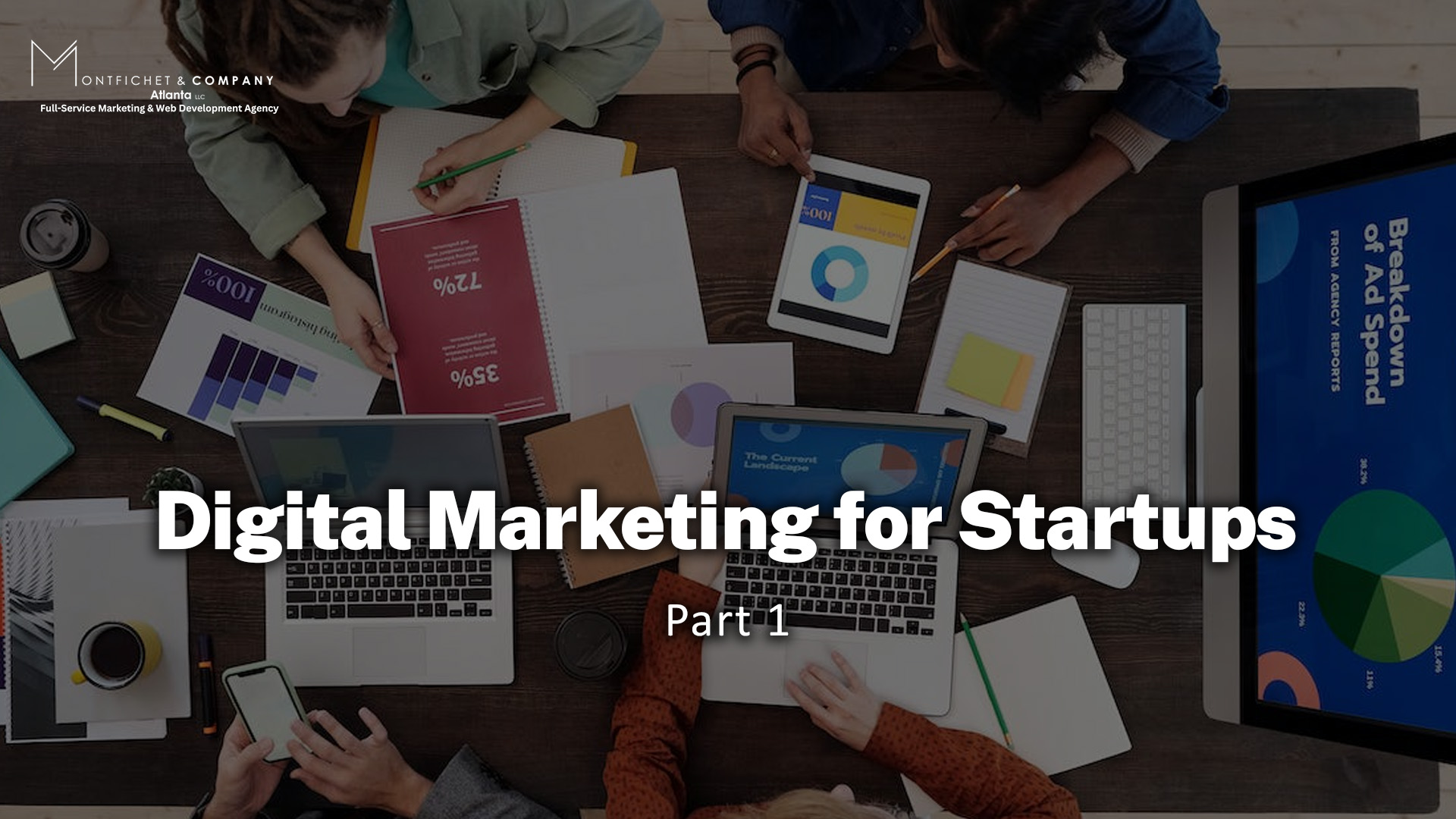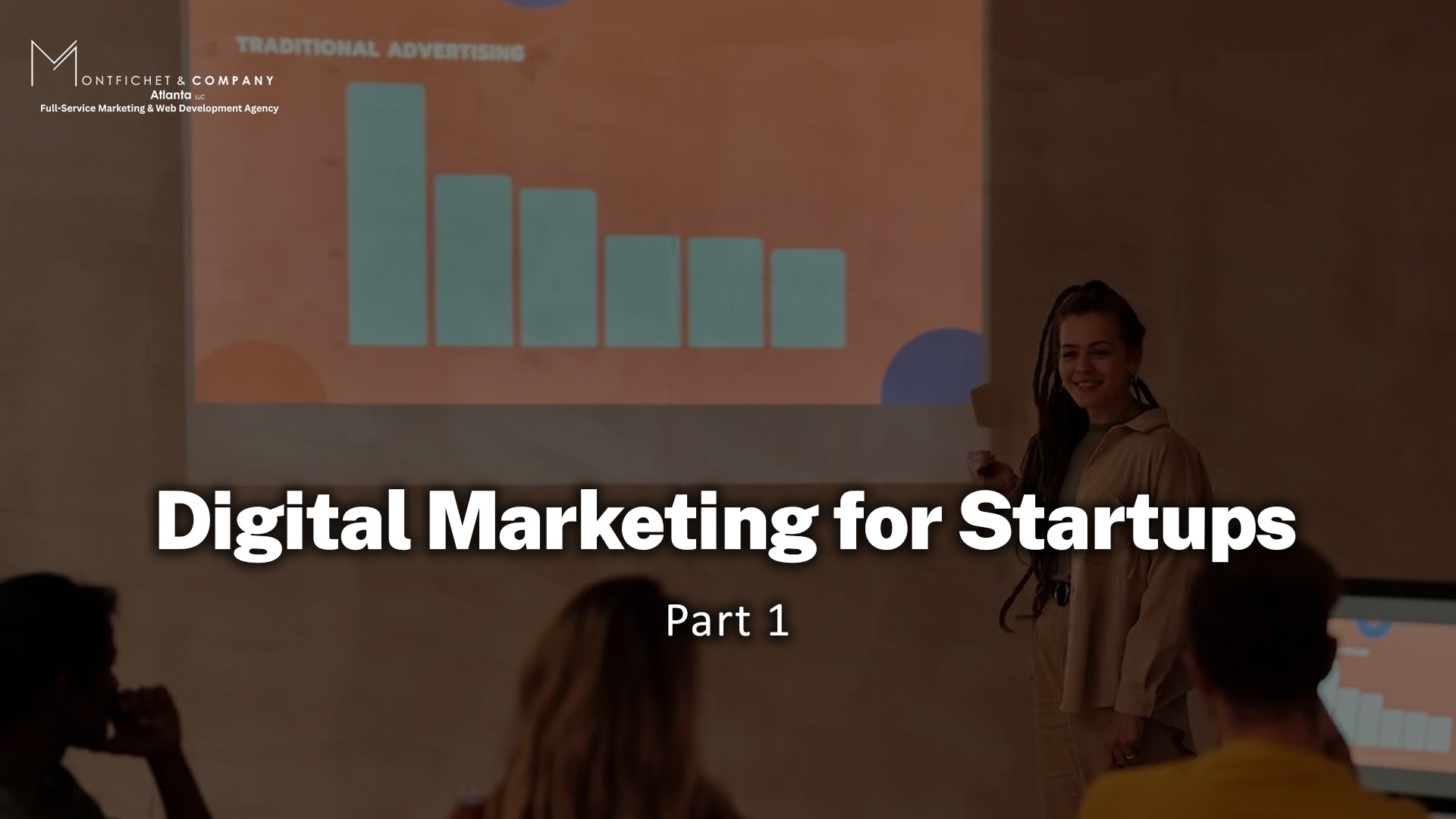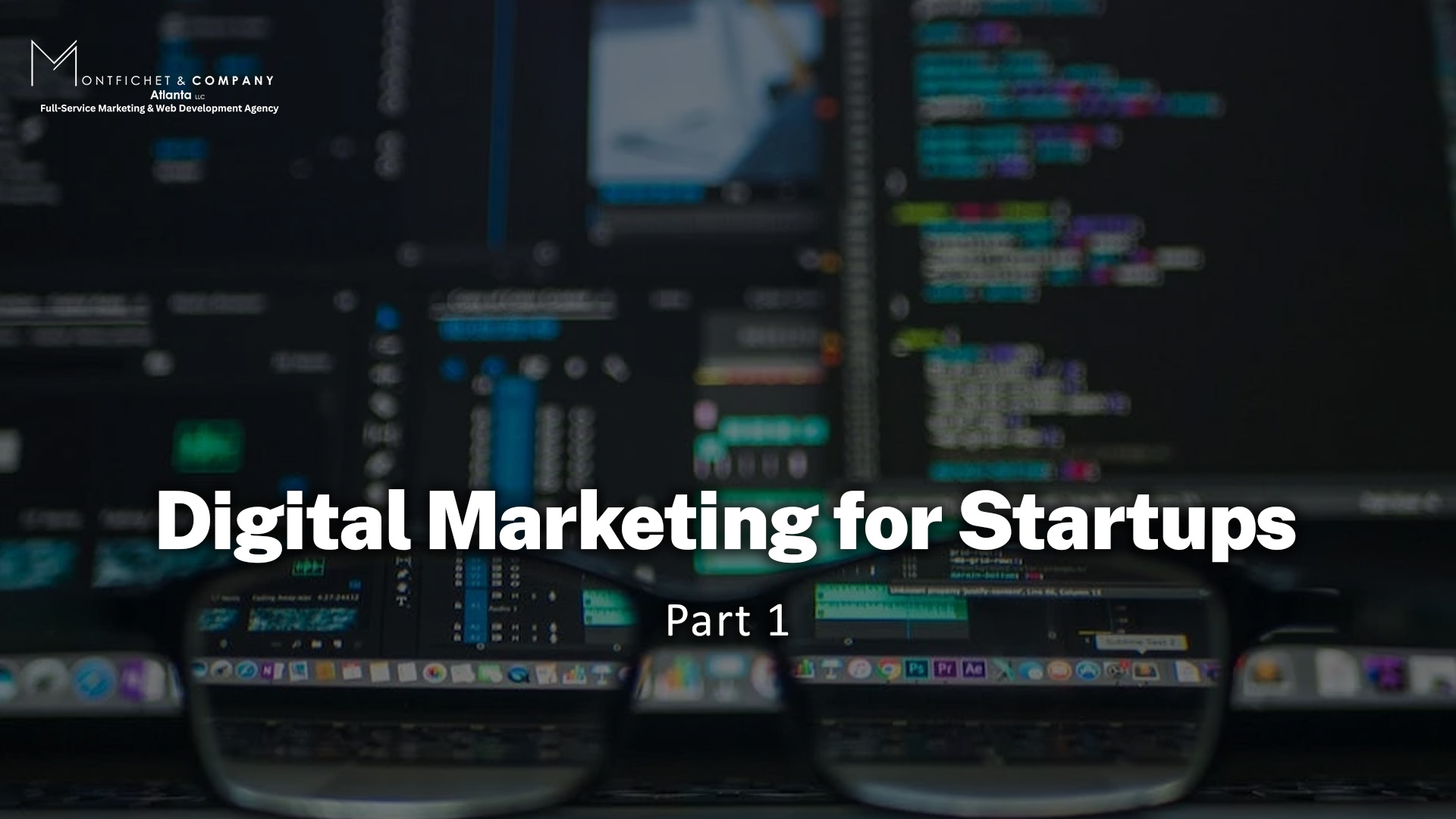Digital Marketing for Startups Part 1
Startups can use a variety of digital marketing techniques to reach their target audience. These include Website Development, Search Engine Optimization (SEO), Content Marketing, Social Media Marketing, Pay Per Click Advertising (PPC), Email Marketing and even influencer marketing.
Website development should be one of the first steps in launching a startup’s digital marketing campaign. Startup businesses need a strong digital presence to reach their target customers. Building an effective website requires research into the customer base and the competition, as well as selecting the right domain name, creating content tailored to attract visitors, and ensuring that search engine optimization techniques are used to ensure your website is found by potential customers.
SEO is the process of optimizing web pages and content so that they rank higher in search engine results when people are searching for related topics or keywords related to your startup. This helps improve visibility in search engine rankings, draws more organic traffic to your website and increases brand awareness.
Content marketing involves creating relevant content such as articles, blog posts, videos, infographics etc., which educate readers about the product or service offered by your startup. The goal is to provide valuable information to potential customers, build relationships and get them interested in learning more about your startup.
Social media marketing is the process of promoting products or services through social media platforms such as Facebook, Twitter, Instagram and YouTube. It helps startups create a presence online, engage with their audience and drive sales.
Pay Per Click (PPC) advertising allows startups to target specific audiences by placing advertisements on search engine result pages (SERPs) when people are looking for related topics or keywords. This can be an effective way to generate leads and increase website traffic in a short amount of time.
Email marketing involves sending targeted emails directly to potential customers with useful information about your startup. It can help build strong relationships with existing customers and attract new ones.
Finally, influencer marketing involves working with influencers in your industry to help promote your startup. Influencers have a large online presence and can help create visibility for your brand and drive website traffic.
By leveraging these digital marketing techniques, startups can gain greater visibility, build relationships with potential customers and generate more leads. Ultimately, this will result in increased sales and growth for the business.
Website Development
Website development is a term used to refer to the process of creating, designing, and launching websites. It can encompass a wide range of activities, including website design, database creation, web hosting setup, software integration, and content management.
The goal of website development is to create an attractive and interactive platform for users to engage with content. The key components that make up successful website development are aesthetics, usability, optimization for search engine rankings (SEO), and security best practices.
The first step in developing a website is deciding what type of site you need. This will depend on your business needs as well as the type of audience you want to target online. Once you have determined which type(s) of websites are best suited for your project, you can begin the design and development process.
This involves creating a basic structure for the website using HTML, CSS, JavaScript, and other coding languages as needed. Once the core elements of the website have been created and tested, it is time to focus on aesthetics and usability.
Aesthetics are important for giving visitors an engaging experience when they arrive at your site. This includes choosing colors, fonts, images, and other visuals that create a cohesive look and feel for your brand or product.
Usability refers to how easy it is to navigate through your website’s pages in order to find what they are looking for quickly and efficiently. Keep in mind that users should be able to easily access all areas of your site without having to search for them.
Once your website has been designed and coded, it is time to focus on SEO (search engine optimization). This involves optimizing the site’s content, images, and page structure in order to increase its ranking on search engines like Google or Bing.
Optimizing for search engines helps you get found by potential customers when they search for keywords related to your business or product. Lastly, it is important to make sure your website meets security best practices in order to protect user information from hackers and other malicious activities. Taking the necessary steps will ensure that visitors have a safe experience while using your website.
Developing a website requires careful planning and execution of multiple tasks in order to create an effective online presence. Website development can be a complex process, but with the right resources and expertise, it is possible to create an attractive and interactive website that meets your business needs and appeals to users.
By focusing on aesthetics, usability, SEO, and security best practices, you can ensure that your website has all of the necessary components for success. With these steps in place, you can begin building a strong online presence that will help you reach more customers.
SEO
Search Engine Optimization (SEO) is the process of increasing a website’s visibility in search engine results pages. By optimizing certain elements of your website, such as content, titles, and HTML tags, you can improve its ranking on major search engines like Google and Bing.
Additionally, SEO also encompasses strategies that involve link building and social media engagement to further increase your website’s visibility. Through SEO, businesses have an opportunity to reach more potential customers online and ultimately drive more traffic to their websites.
The main goal of SEO is to make sure that when users type keywords into a search engine, the most relevant websites are displayed at the top of the list. To do this, SEO professionals must understand how search engines rank websites for various keywords and phrases.
Search engine algorithms consider a variety of elements when ranking websites, such as the number of backlinks to the website, the quality of its content, and how often users access it.
Additionally, many businesses employ SEO strategies to improve their rankings in local search results. By optimizing their Google My Business listing with relevant information and images, they can increase the chances that potential customers will find them in searches for nearby services or products. This is especially important for brick-and-mortar businesses that rely on foot traffic from nearby shoppers.
SEO can be a complex field for both business owners and professionals alike; however, understanding how it works and utilizing effective strategies can help your business achieve better visibility online.
Through careful keyword research and content optimization, businesses can improve their website’s visibility in search engine results pages and gain more customers.
Ultimately, SEO is essential for businesses today that wish to remain competitive online. By optimizing your website and utilizing other strategies, such as link building and social media engagement, you can increase your website’s ranking on major search engines so that potential customers can find you more easily. With a better understanding of how SEO works, you can begin to take advantage of its benefits and drive more traffic to your site.
Content Marketing
Content marketing is a strategic marketing approach that focuses on creating and distributing valuable, relevant, and consistent content to attract and retain a target audience. It can be used for both digital and print media, as well as for television, radio, podcasts, webinars, events, etc.
Content marketing seeks to educate or inform its target audience with the goal of driving profitable customer action through brand loyalty and engagement.
The most successful content marketers understand the needs of their audiences first before developing any type of content strategy. They use research to understand what topics are important to their target audiences in order to create engaging and relevant pieces that will resonate with readers.
Additionally, many content marketers use analytics tools like Google Analytics or HubSpot’s Marketing Grader to track and measure the performance of their content. This helps marketers optimize their strategies by identifying where there is room for improvement or what tactics resonate with readers.
Content marketing can be used in a variety of ways, but some common goals include increasing brand awareness, driving website traffic, generating leads, and building relationships with customers. For example, a company might create blog posts that offer helpful advice on a particular topic related to their industry or product.
Additionally, they may host webinars or workshops offering more in-depth information about the topic at hand. Content marketing also aims to build trust between companies and their audiences by providing expert insights and valuable resources.
Ultimately, creating effective content means having an understanding of your target audience and being able to provide them with content tailored to their needs. By catering specifically to the interests and goals of your readers, you can build a loyal following who will continue to engage with your brand.
The key is finding creative ways to produce valuable, high-quality content that resonates with your target audience and drives meaningful results. With the right strategy, content marketing can be an effective way to reach more customers, build relationships, and drive conversions.

Social Media Marketing
Social Media Marketing (SMM) is a powerful tool for connecting with customers and building relationships with them. It is an essential part of any business’s digital marketing strategy and can be used to create awareness, increase engagement, and drive sales.
The key to successful social media marketing lies in creating an effective strategy that works for your business. This includes having a clear understanding of who your target audience is, what type of content they are looking for from you, and which type of platforms will work best for your goals.
You should also determine the frequency at which you want to post content on various social networks as well as develop measurable objectives such as increasing followers or website visits.
Once you have established a solid foundation, you can start to experiment with different types of content and strategies. For example, using videos, images, and other interactive content can help engage your audience and create a more personal connection.
Additionally, paid social media advertising is an option for businesses looking to reach specific target audiences. This type of marketing allows you to target people based on their interests or demographics so that your ads are seen by the right people.
Finally, it’s important to closely monitor your results and adjust your strategy accordingly. You should track metrics such as engagement rates and website visits in order to see how effective your efforts are. By monitoring this data regularly, you will be able to make necessary changes in a timely manner that will help optimize your digital marketing efforts.

Pay Per Click (PPC)
Pay per Click (PPC) is a form of digital advertising in which businesses pay for clicks on their ads. It is often used to drive traffic to websites, increase brand visibility and generate leads. Advertisers bid on keywords that are relevant to their target audience, allowing them to appear as sponsored results in search engine results pages (SERPs). Ads can also be placed across various social media networks and other online platforms.
When an ad is clicked by a user, the advertiser pays the amount they have agreed upon with the network or platform that posted the ad. This amount may vary depending on the competition for certain keywords, as well as other factors such as geographic location and device type used for viewing the ad.
PPC campaigns can be tailored to target specific audiences, allowing businesses to reach their desired customers more effectively. Advertisers can also set budgets for their campaigns and adjust them as needed. This allows for better control over the costs associated with running a PPC campaign.
By leveraging PPC advertising, businesses are able to get their message across quickly and cost-effectively. It is an ideal choice for companies looking to maximize their ROI (Return On Investment) and achieve lasting results. With the right strategies in place, PPC campaigns can help organizations grow their customer base and increase brand awareness.
The effectiveness of a PPC campaign depends on how well it is managed. Companies should consider hiring professional digital marketing services if they want to ensure that their campaigns are successful. Professional digital marketers understand the nuances of PPC advertising and can help businesses craft tailored strategies that are most likely to drive conversions and generate the desired results.
About Montfichet & Company
Atlanta Our team of experts Montfichet & Company – Atlanta can not only build your business website, but we can manage the process while allowing you to work in your business. We provide Industry research & market analysis to provide efficient content for the Website. We also partner with our sister company The Trusted Automation to help business owners or aspiring business owners and innovators obtain the training need to push to deliver exceptional results.
If you found this article beneficial, feel free to leave a comment below. We are located at 3343 Peachtree Road Ste. 180-581 in Atlanta, Georgia. You can also email our team of experts directly at Atlanta@montfichet.com or contact us at 404-900-9814 for more information.











Recent Comments